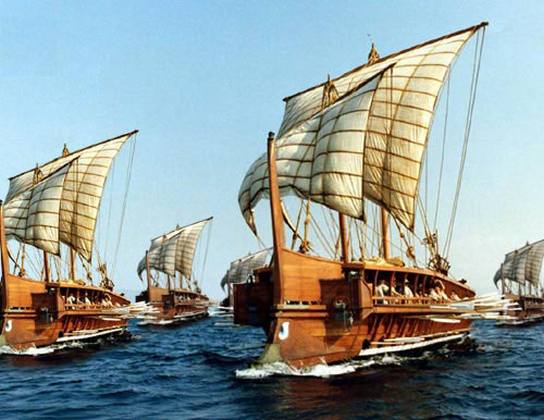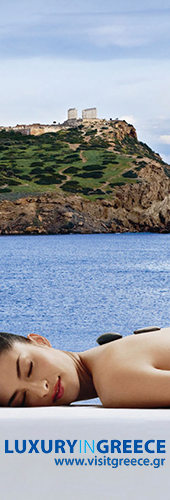- ΣΧΕΤΙΚΑ
- ΤΕΛΕΥΤΑΙΑ ΝΕΑ
- ΗΜΕΡΟΛΟΓΙΟ
- ΕΚΠΑΙΔΕΥΣΗ
- ΕΚΚΛΗΣΙΕΣ
- ΓΙΝΕ ΜΕΛΟΣ
- Ελληνικό Κέντρο
Eventlist
Εκδήλωση

- Τίτλος:
- Open Seminar: Democracy's Impact on War in Classical Athens and Today.
- Πότε:
- 21.05.2015 19.00 h
- Που:
- Greek Centre Melbourne (Mezzanine) - Melbourne
- Κατηγορία:
- Εκπαίδευση
Περιγραφή
Lecturer: Dr David M. Pritchard
Entry: Free
Synopsis
This lecture considers how democracy impacted on warmaking in ancient Greece's largest and most populous state. Athens developed democracy to a far higher level than any other state before the modern period.
It was the leading cultural innovator of its age. Less well known is its military record. Athens transformed war and became one of the ancient world's greatest powers. The timing of this military revolution is striking. It followed directly the popular uprising of 508 and coincided with the flowering of Athenian culture that was largely brought about by democracy.
This suggests that it was democracy that caused this military success. Ancient writers may have thought as much but the tradition assumptions of ancient historians and political scientists have meant that democracy's impact on war has hardly been studied. Democracy impacted on Athenian warmaking in two general but quite different ways. The competition of elite performers in front of non-elite adjudicators created a pro-war culture. This encouraged the Athenians to join the armed forces in ever-increasing numbers and to vote regularly for war. But this was offset by the democracy's rigorous debating of war. This reduced this cultural militarism's risks and encouraged military reforms. It also helped to develop the initiative of the state's generals, hoplites and sailors.
Today there is a pressing need to understand better how democracy affects war. The number of democracies is certainly rising in new regions of the world. But these regions are still plagued by conflict. They continue to experience wars or threats of war. Increasingly these conflicts will involve democracies.
Currently there is no satisfactory explanation of the behaviour of democracies in such conflicts. Consequently we will struggle to prevent them or even to predict how they will progress. Political Science has long used ancient democratic Athens as a source of new hypotheses.
Classical Athens serves as a historical study that is rich in new lines of enquiry into the wars of today's democracies.
Bio
Dr David M. Pritchard is Senior Lecturer in Greek History at the University of Queensland. He has held research fellowships at Macquarie University, the University of Copenhagen and the University of Sydney.
This year Dr Pritchard was Research Fellow in Durham University's Institute of Advanced Study. In 2016 he will be Margo Tytus Visiting Fellow at the University of Cincinnati. In 2014 Dr Pritchard was Visiting Scholar in Greek History at Brown University. In 2013 he was the Charles Gordon Mackay Lecturer in Greek at the University of Edinburgh.
Dr Pritchard has authored Sport, Democracy and War in Classical Athens (Cambridge: 2013) and Public Spending and Democracy in Classical Athens (University of Texas Press: 2015), edited War, Democracy and Culture in Classical Athens (Cambridge University Press: 2010), and co-edited Sport and Festival in the Ancient Greek World (Classical Press of Wales: 2003). Dr Pritchard is now completing for Cambridge University Press a cultural history of the armed forces of imperial Athens.
Sponsors
Our sincere thanks to: Panagis Zapantis (in memory of) for sponsoring this seminar.
During the course of the year considerable expenses are incurred in staging the seminars. In order to mitigate these costs individuals or organisations are invited to sponsor a lecture of their choice. Please email: Αυτή η διεύθυνση ηλεκτρονικού ταχυδρομείου προστατεύεται από κακόβουλη χρήση. Χρειάζεται να ενεργοποιήσετε την Javascript για να τη δείτε. or call 03 9662 2722.
You too can sponsor one or more seminars and (optionally) let your name or brand be known as a patron of culture to our members, visitors and followers, as well as the broader artistic and cultural community of Melbourne.
We also thank the seminars' corporate sponsors:

Τόπος διεξαγωγής
- Venue:
- Greek Centre Melbourne (Mezzanine) - Διαδικτυακός τόπος
- Οδός:
- 168 Lonsdale Street
- ΤΚ:
- 3000
- Πόλη:
- Melbourne
- Νομός:
- VIC
- Χώρα:
-

The Mezzanine floor (press "M" in the elevator) of Greek Centre Melbourne - located at the corner of Lonsdale and Russell streets in Melbourne, Australia.
EventList powered by schlu.net











